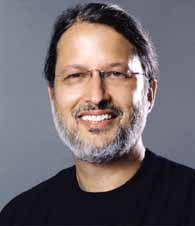|
Executive Interviews: Interview with Amitava Chattopadhyay on Executive Development
October 2007
-
By Dr. Nagendra V Chowdary
Thank youSir, for having consented
for this Interview. Apart fromteaching
MBA and Ph.D students, you were
also involved extensively in imparting
executive education across Europe,
The Americas, Asia, Australia and
Africa. What has been your
experience in teaching executives? In
what different ways do you think
executive programs are different from
traditionalMBA programs?
Executive programs fall into two
categories. One category has the
programs that are open to
executives from different
companies and focus on a specific
topic. These are different from MBA
programs in that they are much
more focused on a specific topic and
built around specific
|
|
management
problems in that topic area. The
second category of programs is
designed for executives from a
specific company to deal with
problems that they are currently
facing. In these programs the
sessions focus on providing
conceptual inputs pertaining to the
specific issue and then working
with the participants to begin to
address their problems using the
frameworks provided. These latter
programs are fundamentally
different from MBA programs in
that they are designed to help
executives solve current problems
that they are encountering.
-
You are also on the board of
directors/advisory boards of several
companies and a consultant to
several multinational firms. Drawing
from your association with those
companies, can you highlight the
trends that have you observed in
encouraging and letting their
executives to go through a structured
learning programs?
The importance of continuous
learning and knowledge upgrada-tion
is well understood by companies
today. The trend is towards company
specific programs as these provide
more specific and relevant inputs, as
noted above, making the investments
in executive educationmore effective. -
Many a times people use executive
education and executive development
in the same parlance. Are they same
or is there any distinction between
these terms? If they are different, can
you please illustrate the differences?
For instance, is it correct to assume
that executive education programs
run as per business schools' calendar
and executive development programs
run as per companies' requirement?
I do not see a difference in the two
terms. The distinction you are
suggesting, I think is better captured
as open enrollment programs and
company specific programs as
discussed in response to your first
question. Open enrollment
programs are open to executives
from all companies and are run as
per the business school's calendar.
Company specific programs are
custom designed at the request of a
specific company to provide very
specific inputs stemming from
issues that they are currently
grappling with. These programs are
scheduled as per the needs of the
company requesting the program. -
For this Interview, we shall be
using, with your permission,
executive development (assuming
the connotations of executive
education are also embedded in this
expression). What is the role and
importance of executive
development programs?
Executive development programs
are quite crucial for several reasons.
First, in a fast changing
environment, firms need to acquire
new knowledge all the time, as on
the one hand knowledge itself is
growing and on the other, the
problems that companies face are
changing, requiring them to acquire
new knowledge. For example,
companies in India are expanding
internationally. For many
companies, this is a brand new
activity and there is often not
enough understanding of the issues
or the knowledge to cope with them.
Another classic problem is growth
through acquisition. Such growth
creates a multitude of cultures,
languages and methods of doing
business within one company.
Creating a common culture with a
common language and a common
set of practices can be greatly
facilitated through the use of
executive development programs.
1.
Training and Development Case Study
2. ICMR
Case Collection
3.
Case Study Volumes
|
